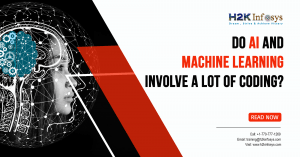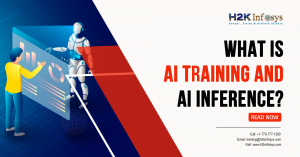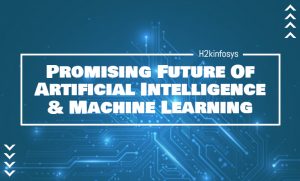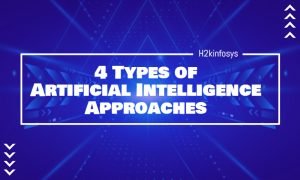When I mention artificial intelligence (AI), what comes to mind? Is the world being taken over by robots? Or perhaps something you’ve seen in a science fiction movie? Don’t worry; it occurs to everyone.
AI and the innovations it has brought must be recognized if the twenty-first century is to be remembered for anything.
Machine intelligence is referred to as artificial intelligence. In the modern world, artificial intelligence has become more and more popular. Machines that have been designed to learn from experience and imitate human behaviour are simulating natural intelligence in this way.
These machines are capable of learning from experience and carrying out jobs that resemble those carried out by humans. The development of artificial intelligence (AI) technologies will significantly affect our quality of life.
Artificial intelligence is the art and science of building intelligent machines. And what we see today is merely the outcome of a protracted evolution driven by industrialization. Even while AI is still in its infancy, its many applications, depending on distinct types, are already pervasive.
The 21st century has been dramatically revolutionized by AI, which is now a crucial aspect of our daily life. Understanding its many sorts and categories becomes crucial as a result. You can check out the online AI training to know more.
Based on functionality, there are four different types of artificial intelligence: reactive machines, restricted memory, theory of mind, and self-awareness.
1. Artificial intelligence Reactive Machines
We might claim that the field of AI was paved over by reactive machines. It was the inspiration for “Conditional Intelligence” and is the earliest of the four categories.
Reactive machines deal with a straightforward set of behaviours that react to their surroundings. They are unable to use the facts to infer what they will do in the future.
In other words, it is a complicated network of nested if-else situations that is incapable of learning from the past. It only acts in accordance with the settings that are given. Reactive AI is exemplified by Deep Blue, the renowned IBM chess program that defeated Garry Kasparov. Google is another example of a reactive machine, along with AlphaGo.
2.Limited Memory
Limited memory machines are entirely reactive systems with decision-making and the capacity to learn from the past.
People with poor memories, to put it simply, have a tiny memory that they can use to make observations and assess a situation before reacting. Its capacity for learning is the only feature that sets it apart from reactive machines, as was already mentioned.
Prior knowledge is used by algorithms to comprehend situations and choose the best course of action. Like all contemporary AI systems, they are taught using vast volumes of data that are then stored in their memory to provide a framework for problem-solving.
For instance, AI that scans things is taught on tens of thousands of labelled images. Consequently, whenever you scan an image, it uses the training images as references to figure out the contents of the image. It labels recent images with increasing accuracy over time based on its learning experience.
3.Theory of Mind
The first two kinds of AI we saw are widespread, while the following two are either ideas or ongoing projects. Numerous researchers predict that the Theory of Mind will lead to the next major development.
Why?
Like a human, the theory of mind will be capable of comprehension and perspective. Additionally, it will be able to communicate feelings. The next stage of AI systems under study at the moment is the theory of mind. It will behave most like human behaviours if it ever exists.
This AI will be able to better understand the creatures it interacts with by inferring their requirements, wants, beliefs, and emotions.
Other fields of AI must also be developed in order to obtain the Theory of Mind. For top AI researchers, artificial emotional intelligence, for instance, is a growing field. This is due to the fact that in order for AI computers to comprehend human needs, they will need to view humans as unique beings whose minds can be formed by a multitude of variables.
4.Self Awareness stage of Artificial intelligence
The majority of technocrats are terrified of the self-awareness stage of AI. However, it is simply a hypothetical possibility at this time. An AI that has developed to be so like the human brain that it achieves self-awareness is referred to as self-aware AI, which is self-explanatory.
Self-aware AI is capable of having concepts like self-preservation, which could ultimately lead to humanity’s extinction. To put it simply, a Self-Aware AI system will have complete access and understanding of its own. This kind of AI will be an exact replica of human intelligence.
Although it will be generations before this kind of AI is a reality, it will always be the ultimate objective of all AI research. But if we succeed in creating this AI system, it will have desires and perhaps beliefs of its own. For instance, it might exhibit human traits like tenacity along with loves and dislikes. You may have seen this form of AI in science fiction films.
Conclusion
Everyone today wants to interact with AI technology in some capacity, whether as a developer or an end user, which makes sense. Humans have produced an intelligent being capable of carrying out duties intelligently without being specifically told to, and also able to think and act rationally and humanely. Check out the Artificial Intelligence online course to learn more.



























One Response
Very good nice